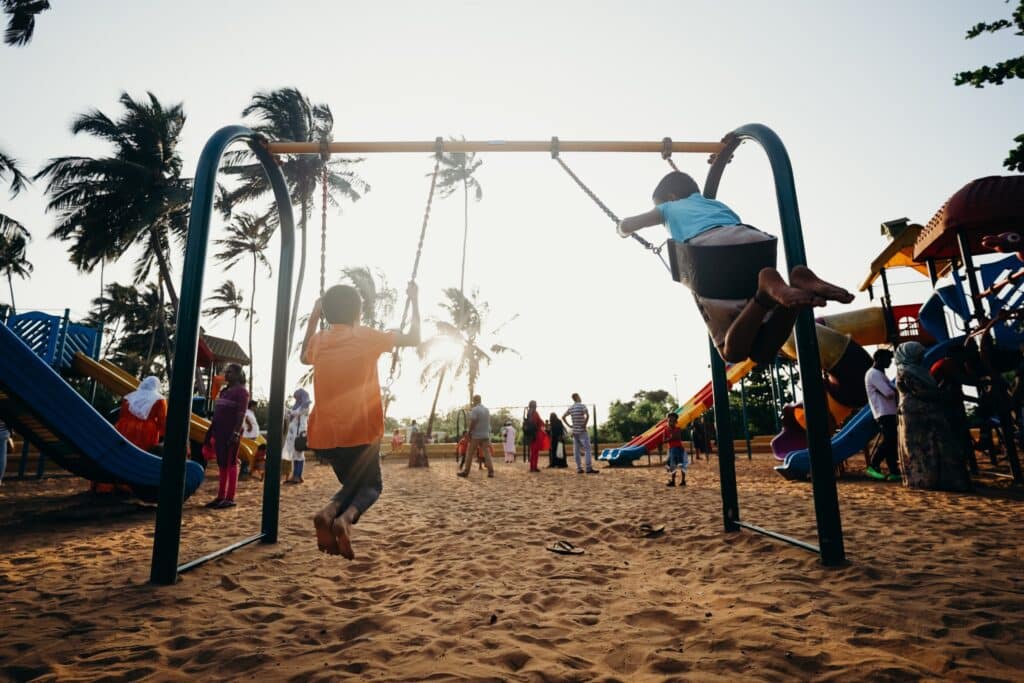A parent’s substance misuse can change the course of their child’s life.
An estimated 21.6 million children live with a parent misusing any substance in the past year as of 2019. These statistics represent 16.2% of all children. With the most recent fentanyl epidemic aided by the isolation of the COVID-19 epidemic, these figures are likely low.
A parent’s job is to shield and protect their children and provide adequate shelter and care. However, drugs interfere with this instinct, and the impact of parental addiction on child development cannot be understated. Because of the stressful and damaging experiences of drug use at home, children are often the silent victims.
What is the Impact of Parental Addiction on Child Development?
Substance use disorder and its impacts on children include emotional, psychological and physical effects. Childhood trauma connected to addiction is not limited to these effects, but these are the most common and researchable:
- Emotional trauma: Emotional trauma in children is common in those exposed to substance misuse in the home by a parent. Most of the time, they are unable to verbalize their feelings during these experiences. Drug use in the home has an undeniable influence on their ability to feel and express emotions appropriately.
- Self-harming tendencies: Children exposed to extreme scenarios that involve drug use, intoxication, domestic violence and other traumatizing events are at risk. Many internalize these memories and seek out destructive ways to handle their emotions.
- Neglect: When a parent focuses on their drug use, neglect defines their relationship with their child. Children who do not feel loved or cared for by their parents can struggle with many emotions. The most common feelings include distrust, resentment and disconnect with others.
- Bonding: From the time a child is born, parents teach them how to connect with their world and bond with others. If their mom or dad is preoccupied with drug use, this can lead to bonding issues. These early exposures to a lack of healthy bonding can lead to codependency and a lack of trust. Children often carry these issues into adulthood, which can continue the addiction cycle.
- Emotional delay: If a child does not learn to express emotions adequately from their parent, they can become emotionally underdeveloped. This can lead to a lack of remorse or empathy as well as poor decision-making. These traits predispose them to substance misuse once they get older and are around those experimenting with drugs and alcohol.
- Lost childhood: Many children of those who have a substance use disorder feel like they missed out on a normal childhood. They had to grow up quickly and take on adult responsibilities that they were unprepared for at the time. This can lead to intense anxiety and stress that follow them into adulthood.
These are only a few examples of the impact of parental addiction on child development. Every child is different and requires personalized care from their parent. Addiction impedes that essential development, which can lead to more issues down the line, especially regarding mental health effects.
Mental Health Effects on Children of Addicted Parents

Drug misuse and addiction mean chaos and uncertainty. Growing up in a home where substance use is present means that children miss out on a life of structure and stability. Most children’s usual experiences, such as quality family time, school events and other milestones, are lost. This can lead to many childhood psychological difficulties, such as:
- Learning disabilities
- Stunted life skills
- Difficulties at school
- Disruptive behavior in the classroom
- Anxiety and panic attacks
- Depression
- Obsessive-compulsive disorder (OCD) behaviors
- Low self-esteem or self-worth
A combination of mental health issues and hereditary addiction puts many of these children at risk. There is evidence of intergenerational addiction challenges that many parents do not know. Unfortunately, this means that the children of those with substance use disorder are more prone to drug addiction themselves.
Breaking the Cycle of Addiction in Families
It is never too late to attempt to remedy the effects of drug use exposure on a child. Although family therapy is undoubtedly necessary, understanding the addiction cycle is vital.
The physical impact of drug addiction begins in the womb. When a mother misuses drugs, these substances have many dangerous and potentially lethal effects on an unborn child. Some babies are born addicted to drugs, which can lead to various physical and developmental issues in their early life. These issues can continue into adulthood without medical and therapeutic intervention.
Even if a child is not born addicted, substance misuse in the home can still have an intense physical effect. Knowing that their parent is involved in what they see as a harmful activity can lead to stress-related symptoms, including:
- Migraines
- Digestive issues
- Ulcers
- Obsessive-compulsive disorder
Breaking the addiction cycle is not easy. However, as a parent, you are in control of your child’s life and future. If you or your partner is currently misusing drugs while pregnant, consult with a medical provider as soon as possible. There are many safe medical options that provide addiction recovery during pregnancy.
If you have a child and suspect you or your partner has an issue with substance misuse, the time to act is now. You can change the course of your life and your child’s life by deciding to get help.
Learn More about the Impact of Parental Addiction on Child Development through BAART Programs
Your child’s future lies in your hands. If you are a parent and struggle with opioid addiction, do not wait another day to get the help you need. Your child deserves a better life — and so do you. Our compassionate medical providers and nursing staff will connect you to medication-assisted treatment. They will do what is necessary to make this process safe and easy for you and your child.
Please contact us today to learn how BAART Programs can help bring hope and healing to you and your family.




